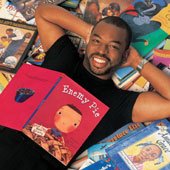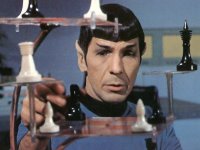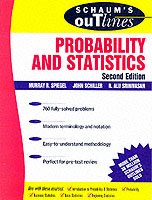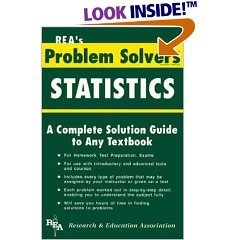Sunday, April 30, 2006
Thursday, April 20, 2006
CONNED
CONNED AGAIN, WATSON: CAUTIONARY TALES OF LOGIC, MATH AND PROBABILITY
by
Colin Bruce

Guess we know who got "conned" this time. ...but you get the idea... :)
Tuesday, April 18, 2006
If Statistics Lie, Can Deceive, and Can't Be Trusted, then Why Can't Santa Claus Be Real?

Here's an interesting article on the statistical basis for a "real" Santa:
http://www.funs.co.uk/fs/s8.html



and one on the nonstatistical basis for a fictional one:
http://en.wikipedia.org/wiki/Santa_Claus



YOU DECIDE!

Watchwords to Look Out for When People Are Trying to Get You Interested in Statistics


Subgenres of Type Two






THIS IS TO SEE IF YOU'RE PAYING ATTENTION!!!

Cars, Blondes, What?...Whatever.... To all you SEAS (School of Engineering and Applied Science) guys out there, wannabe SEAS guys, and of course, our pure math-stat buddies out there, before we got into the "Sub-genre Taxonomy" stuff, I thought you could use... well, you're smart,... YOU FIGURE IT OUT... :) 

Subgenres - the DEFINITIVE GUIDE


This also fits in with our aforementioned:

I Know What You Did LAST SUMMER, and It Suck*d!

The link is right here:
http://www.ce.columbia.edu/summer/

For High School Students, You Might Want to Go To:
http://www.ce.columbia.edu/hs/
The Courses Offered in Statistics are:
http://www.ce.columbia.edu/summer/statistics.cfm

Obviously, these are not the only courses that require statistics, but they are the ones offered by the department. The mathematics courses are listed under the following link:
http://www.ce.columbia.edu/summer/math.cfm

Blondes, Car Accidents, and Intelligence


Do Blondes Have More Fun? Are They Stupid and Hot, or...well,... Just Hot? Are they part of an Aryan "Masterrace"? I don't have any definative answers for you guys (and gals) out there, just yet (we might revisit this topic at some later date, since who doesn't like revisiting a few blondes if they're hot?), but I did run across this article from a few years back.
http://www.smh.com.au/articles/2003/11/30/1070127270286.html?from=storyrhs

I've Heard They Make Big Bucks, ...but REALLY, ...How Do I Become an Actuary?... and Why Would I Want To (Besides the Cash)?

Interviews...they're coming...! :0


Monday, April 17, 2006
Are the People Who Write These Books Promoting a Culture of "Statistical Literacy" or Are They Just Making Money by Saying It's O.K. to be Stupid?


 Basically, these are books that appeal the "Reading Rainbow" watcher in all of us. Remember when you were little and actually good at science? Remember how you use to come home from school and be all excited about growing a plant out of a potato in a jar or talking about the local weatherman who came to your school and talked about why clouds fill up with moisture and rain? Well, anyway these books are written in the same vein. They often try to answer the question, "What's new and interesting in statistics?", or "Why is statistics interesting to people only interested in things which affect 'the real world'?". Anyway, these books are often light on the actual instruction of statistical techniques and heavy on anecdotes. They allow a reader to be able to talk about statistics as if they knew how to do the problems, and maybe even fake the fact that they know a lot about the field. Basically, these books help a wantabe "smart guy" fake it.
Basically, these are books that appeal the "Reading Rainbow" watcher in all of us. Remember when you were little and actually good at science? Remember how you use to come home from school and be all excited about growing a plant out of a potato in a jar or talking about the local weatherman who came to your school and talked about why clouds fill up with moisture and rain? Well, anyway these books are written in the same vein. They often try to answer the question, "What's new and interesting in statistics?", or "Why is statistics interesting to people only interested in things which affect 'the real world'?". Anyway, these books are often light on the actual instruction of statistical techniques and heavy on anecdotes. They allow a reader to be able to talk about statistics as if they knew how to do the problems, and maybe even fake the fact that they know a lot about the field. Basically, these books help a wantabe "smart guy" fake it.




Wednesday, April 12, 2006
So it's the Middle of April and You Need to Cram?
Well, next month we're going to be trying to get some feedback posted from people who've used the various "helping" books either for the AP or Finals. We'll then try to either rank them or at least describe the main ones (Barron's, Kaplan, Princeton Review, Sparknotes, etc.)in Math/Statistics.
Since this online blog/magazine didn't exist last year, we don't have a winner to sight from last year's nonexistant rankings/polls. So like so many publisher/editor-and-chief's before me, I'll just pick the one that seems to work for me. I wonder if Hef had the same problem with Marilyn Monroe? Anyway, and the winner is...

THE PRINCETON REVIEW - PERIOD. And no, that's not Marilyn Monroe on the cover.:(

Did Statistical Science Win World War 2?


A Victor, Not a Butcher - Statistics, A Scorecard for Life?

Without going into a high school history class walk down memory lane, the thing that struck me was how statistics are almost always invariably used as the standard for judging whether something subjective and theoretical is in fact objective and real...like this theory about Grant being a butcher.
Is/Are Statistics the Scorecard for life? What are the implications for this in a data rich society and information based economy? ...Stay tuned and find out.




